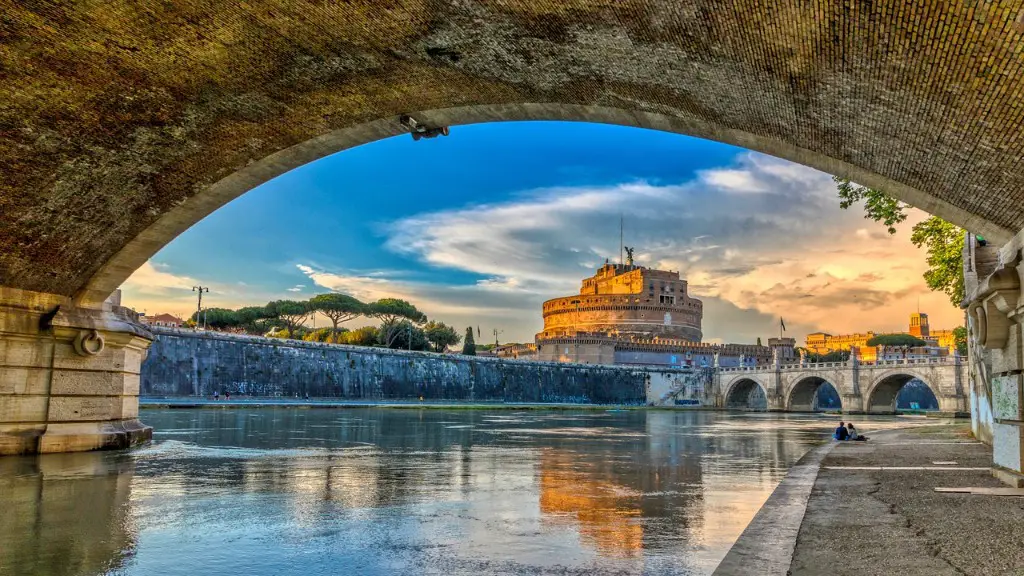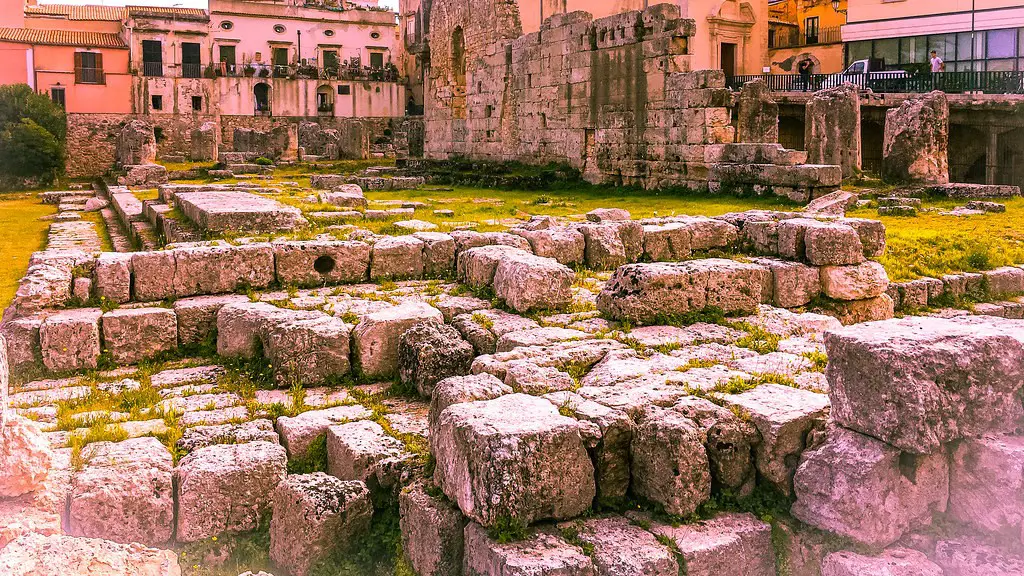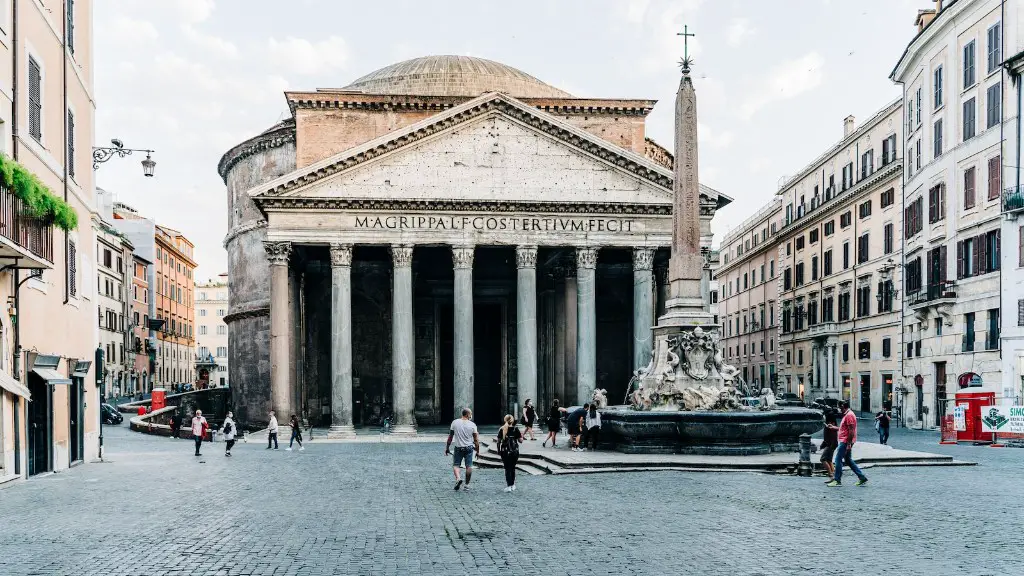The question of who was the greatest leader of ancient Rome has been a source of debate for centuries. Throughout their own time, the Romans sought to create an empire that was firmly based on the principle of leadership: an individual who was wise and capable, able to lead his people to greatness. Through the centuries, these leaders have been remembered for their accomplishments, failures, and insights.
The most commonly cited leader of ancient Rome is Julius Caesar, who brought the Republic to greatness. Caesar made many contributions to Rome, such as the founding of the first permanent Roman roads and the building of aqueducts to improve the city’s water supply. He also reformed the Roman armies and enacted a number of social reforms, such as providing free grain to the poor. Caesar also sought to create a more unified political system, creating alliances with other cities and granting Roman citizenship to those living outside the city-state. One of the most important accomplishments of Julius Caesar’s rule was the introduction of the Roman calendar, which allowed for more accurate dating of events and gave rise to the modern calendar.
Another great Roman leader was Augustus Caesar. Augustus was the first Roman emperor and is considered the founder of the Roman Empire. He is remembered for expanding the Roman Empire, for providing stability to the economy, and for introducing various reforms to improve the lives of his citizens. Augustus successfully reorganized the Roman government and created a system of taxation and coinage. He also introduced reforms to the military and to the judicial system, as well as introducing new architecture and public works. Augustus created a system of patronage, or patronage networks, whereby he rewarded those who supported him with monetary rewards and other benefits.
The third most commonly cited leader of ancient Rome is Marcus Tullius Cicero, who is widely recognized as one of history’s greatest political philosophers. Cicero was an accomplished orator and lawyer, and he was an important figure in the politics of the Roman Republic. He is especially noted for his advocacy of religious tolerance and his writings, which contained strong criticism of the aristocratic government and the power of the Senate. He was a passionate advocate for the rights of the common man and was a major influence on political thought in the Roman Empire.
The fourth and final leader commonly cited as the greatest the leader of the ancient Rome is Romulus. Romulus was the founder of the legendary city of Rome and is remembered for uniting the warring Latin and Sabine tribes, two of the major groups in the area that would become Rome. Romulus is also credited with giving the city its name and is believed to have established the city’s government, laws and gods. His legacy is one of courage and strength, his name synonymous with the beginning of Rome and its culture.
Civic and Military Achievements
The great leaders of ancient Rome were not only remembered for their substantial political and religious contributions, but also for their many civic and military achievements. Julius Caesar was instrumental in the development of the Roman military, creating a well-organized and disciplined force. He also introduced reforms to improve the conditions of soldiers, showing a dedication to the cause of Roman greatness. Augustus expanded the military further and made it a professional, organized force. He also commissioned new buildings, monuments and public works, which showcased the prosperity of Rome.
The military accomplishments of Marcus Tullius Cicero are often overlooked. Cicero was an accomplished military strategist, noting that war could be used to gain political leverage. He argued that foreign wars could be focused on achieving specific goals, such as controlling resources or establishing territories. As commander of a Roman army, Cicero was successful in defeating the invading forces of Gaul, and in insuring Rome’s power in the region.
Romulus was also a successful military leader. He is credited with defeating the neighbouring Sabines and Etruscans and establishing a Roman presence in the area. He was also the first to introduce cavalry forces and organized mercenary troops that helped Rome in its military campaigns.
Legacy and Influence
The legacy and influence of the greatest leaders of ancient Rome is still evident today. Julius Caesar’s influence can be seen in the calendar, which is still used in much of the world today. Augustus helped create systems and practices that would shape later governments, such as the establishment of municipal governments, taxation and coinage. Marcus Tullius Cicero stands as one of the most influential political philosophers in history, and his writings continue to influence political discourse around the world. Finally, Romulus’s efforts to create a unified Rome, as well as his contribution to military strength and architecture, continue to shape the city and its culture.
Motivational Impact
The legacies of these great leaders of ancient Rome point towards the importance of strong leadership. Julius Caesar, Augustus and Cicero governed with amongst varying levels of success, but they all stressed the need for decisive action and wise choices. The contributions of Romulus, in particular, demonstrate the value of determination and courage in facing difficult situations. These leaders left behind an impressive example of the great potential of political and military leadership.
Furthermore, the legacies of these leaders reveal an important truth about leadership: it is never a one-person endeavor. Every great leader of ancient Rome relied on the support and counsel of their peers. This emphasizes the value of collaboration, something that is just as important today as it was in ancient Rome.
Conclusion
The great leaders of ancient Rome have left an indelible mark on history. Each of these leaders contributed to the rise of Rome and the preservation of the arts and culture. They employed different forms of leadership, from Augustus’ patronage networks to Cicero’s oratorical skill and philosophy. Most importantly, their legacies serve as a testament to the power of strong leadership and collaboration in achieving lasting greatness.


